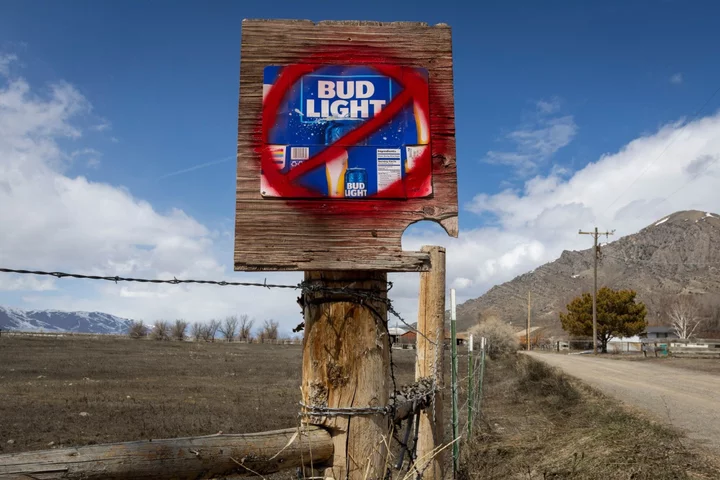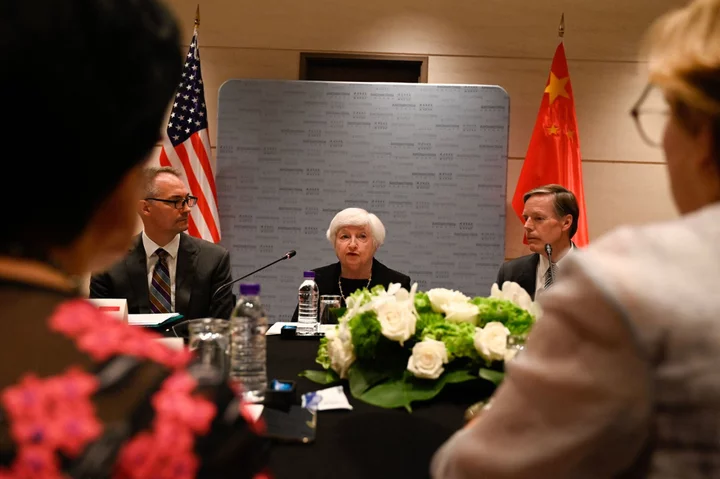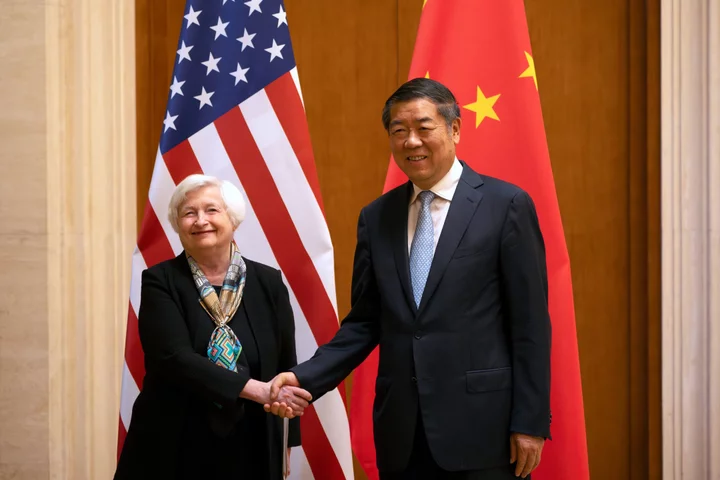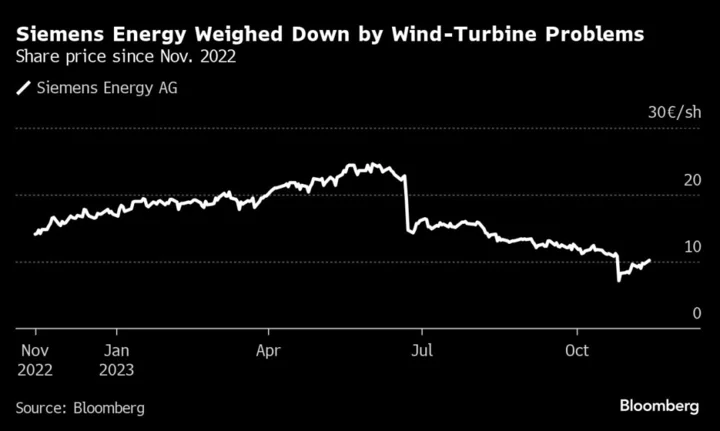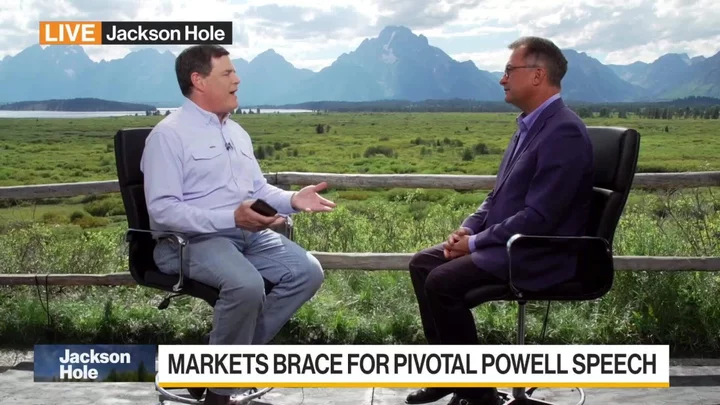British banks have already got a taste of what it’s like to be drawn into the global culture wars. Now, the country’s consumer brands are facing scrutiny for their own efforts to cater to their increasingly socially conscious customers.
The likes of coffee chain Costa and shoemaker Dr. Martens Plc have found themselves targeted online in the backlash against so-called woke capitalism. Meanwhile, UK officials have warned companies to stay out of what they see as political debates, adopting language that echoes government criticism of NatWest Group Plc’s decision to cancel the bank account of Brexit campaigner Nigel Farage.
“I’m uncomfortable, instinctively, to see big businesses appropriating the views of their customers to make a political point,” Chief Secretary to the Treasury John Glen said this week in comments reported by the Press Association. “If they want to get into politics, then stand for election.”
Glen’s remarks came after the outcry sparked by the “debanking” of Farage, who was dropped by NatWest’s private bank Coutts after an internal debate about whether his rightwing political views were out of step with the company’s values. The bank’s chief executive officer, Alison Rose, quit under government pressure after admitting leaking details about the discussion regarding his accounts.
The pushback against companies expressing political views considered progressive or inclusive began in the US, where brewer Anheuser-Busch InBev NV is still trying to arrest a plunge in sales of Bud Light beer after it used a transgender influencer to promote the brand.
UK Prime Minister Rishi Sunak’s Conservatives have increasingly embraced similar “anti-woke” rhetoric as they attempt to motivate the party’s base and draw a line with the opposition ahead of a general election expected next year.
Sunak and Labour leader Keir Starmer have waded into debates around biological sex and free speech, which have often overshadowed crises such as the biggest squeeze on incomes since the 1970s, National Health Service waiting times and raw sewage being dumped in British seas and rivers. Sunak has said that biological sex is “fundamentally important,” while Starmer has stated that a woman is an “adult female.”
UK companies have already been facing the wrath of the anti-woke brigade, emboldened by anger over the treatment of Farage. In a febrile pre-election atmosphere in which the culture wars are taking center stage, promotions aligned with events like Pride Month are attracting new attention. Companies are having to grapple with how to position themselves in a world where inclusiveness is seen as a virtue — until it threatens the bottom line.
“It’s quite well-documented what the election is being fought on,” said Asad Dhunna, founder of the Unmistakables, an inclusion consultancy. “There’s a new culture-wars story in the spotlight every day.”
Mentions of the word “woke” in the British press rose by 19% and by 34% on social media in the first quarter of this year versus 2022, according to research by the consultancy, which helps organizations introduce policies that accelerate inclusion and diversity.
Illustrated Boots
Companies’ challenges have been encapsulated by a pink figure with funky hair buns and stitches across their chest who waves their large, hairy arms behind a rainbow flag. That’s the illustration on a pair of Dr. Martens boots, created by artist Jess Vosseteig. This month, her design was attacked by British critics of gender reassignment surgery.
A company spokesperson said the boots are part of a long-standing US social media competition where artists design a single pair to be given away to the community. “We have always embraced diversity in the Dr. Martens community. We’re proud to support our team and our wearers, and to continue to support creativity and freedom of expression,” they added.
Coca-Cola Co.’s Costa Coffee faced calls for a boycott over a mural showing a transgender person with mastectomy scars, which the company said “showcases and celebrates inclusivity.”
Former British marathon runner Mara Yamauchi lambasted both companies in a post on Twitter, the social media platform Elon Musk is renaming X, and said she would boycott them. It is “grotesque” they used imagery showing the “unnecessary butchering of girls’ and young women’s healthy breasts in the name of regressive, misogynistic & homophobic ideology to sell their products,” she wrote.
Social media calls for a boycott of Dr. Martens might fall on deaf ears since the buyout-backed shoemaker is well known for its irreverent punk attitude and appeal to youth culture.
Beer Boycott
Still, the recent backlash against Bud Light serves as an uncomfortable warning for British companies. AB InBev cut ties with transgender influencer Dylan Mulvaney after a disastrous marketing post on Instagram.
The fiasco caused a drop in Bud Light’s US sales that some analysts said may be permanent. In the second quarter, AB InBev’s US revenue fell 11% and core profit plunged 28%.
Read More: AB InBev Rebounds From Bud Light Fiasco as LatAm Sales Soar
Heineken NV Chief Executive Officer Dolf van den Brink appeared to take a swipe at his rival when asked about the Bud Light misstep in an interview with CNBC.
There is a lot of polarization in society and that is affecting all players, businesses and brands, he said, adding: “As such, you have to be thoughtful, you have to be balanced. But at the same time you have to stand for your values and your principles.”
AB InBev’s analysis suggests beer drinkers do not want it to tackle societal issues. A survey of 170,000 of its customers since April showed they wanted to enjoy their drinks “without a debate” and urged Bud Light to “focus on beer,” Chief Executive Officer Michel Doukeris said.
Yet sitting out the culture wars can also backfire.
Employees are demanding a more inclusive culture, which can mean taking a stand publicly. Not appeasing them risks losing workers — particularly younger ones — to rivals.
“On the inside people want a more inclusive culture,” Dhunna said. “But on the outside, you’ve got quite a visceral backlash to words like diversity and inclusion.”
--With assistance from Joe Mayes and Brendan Scott.

